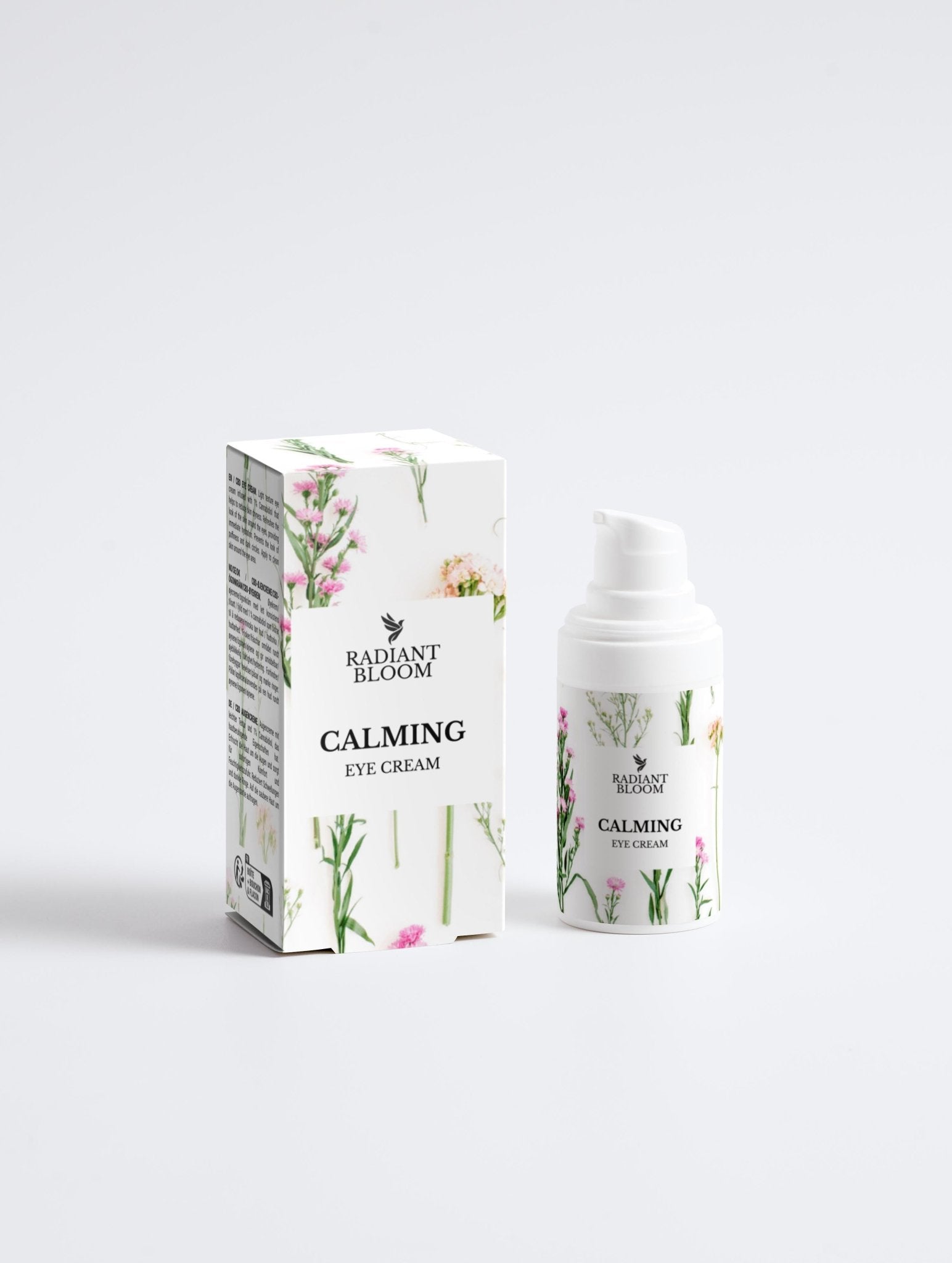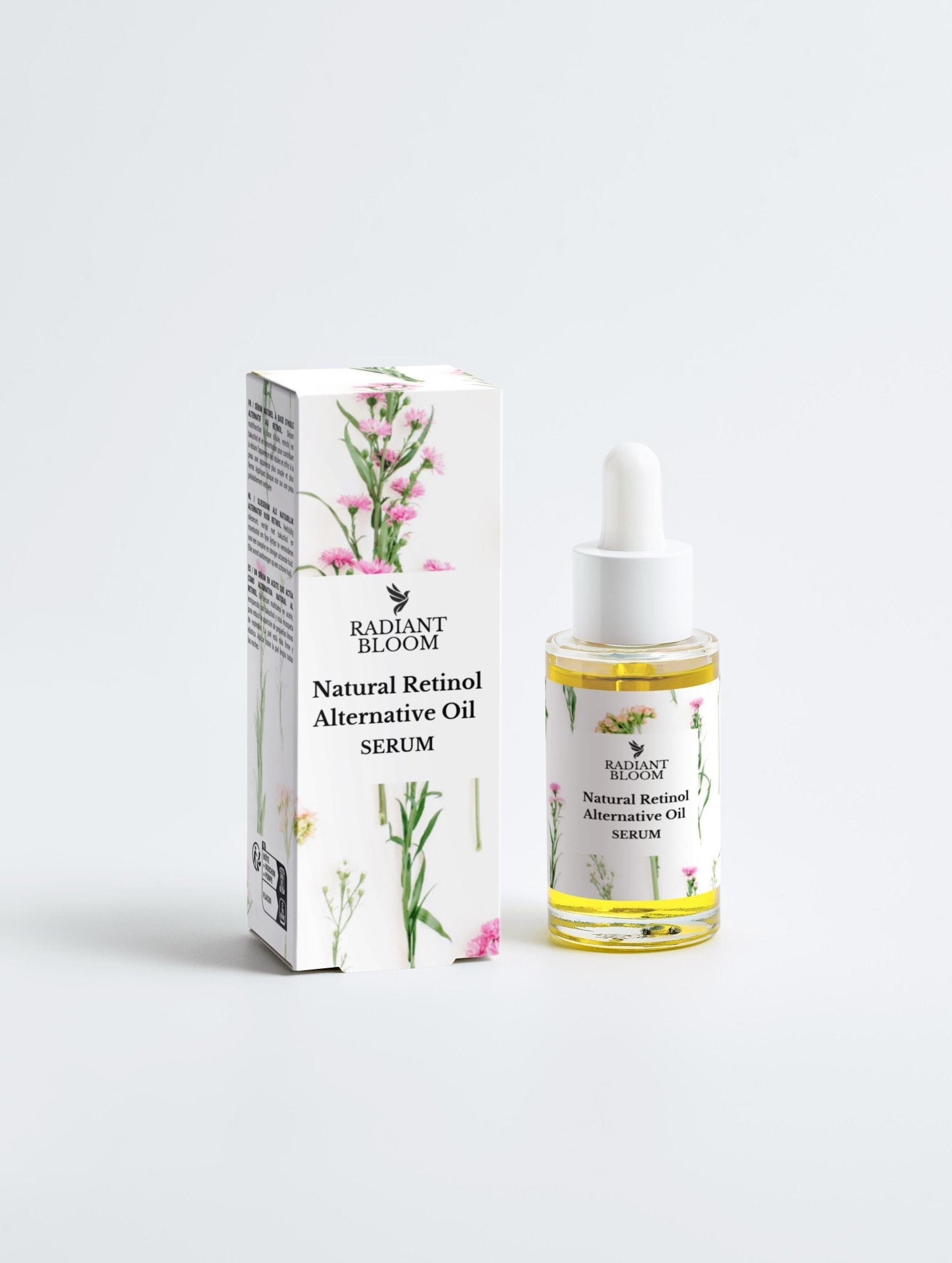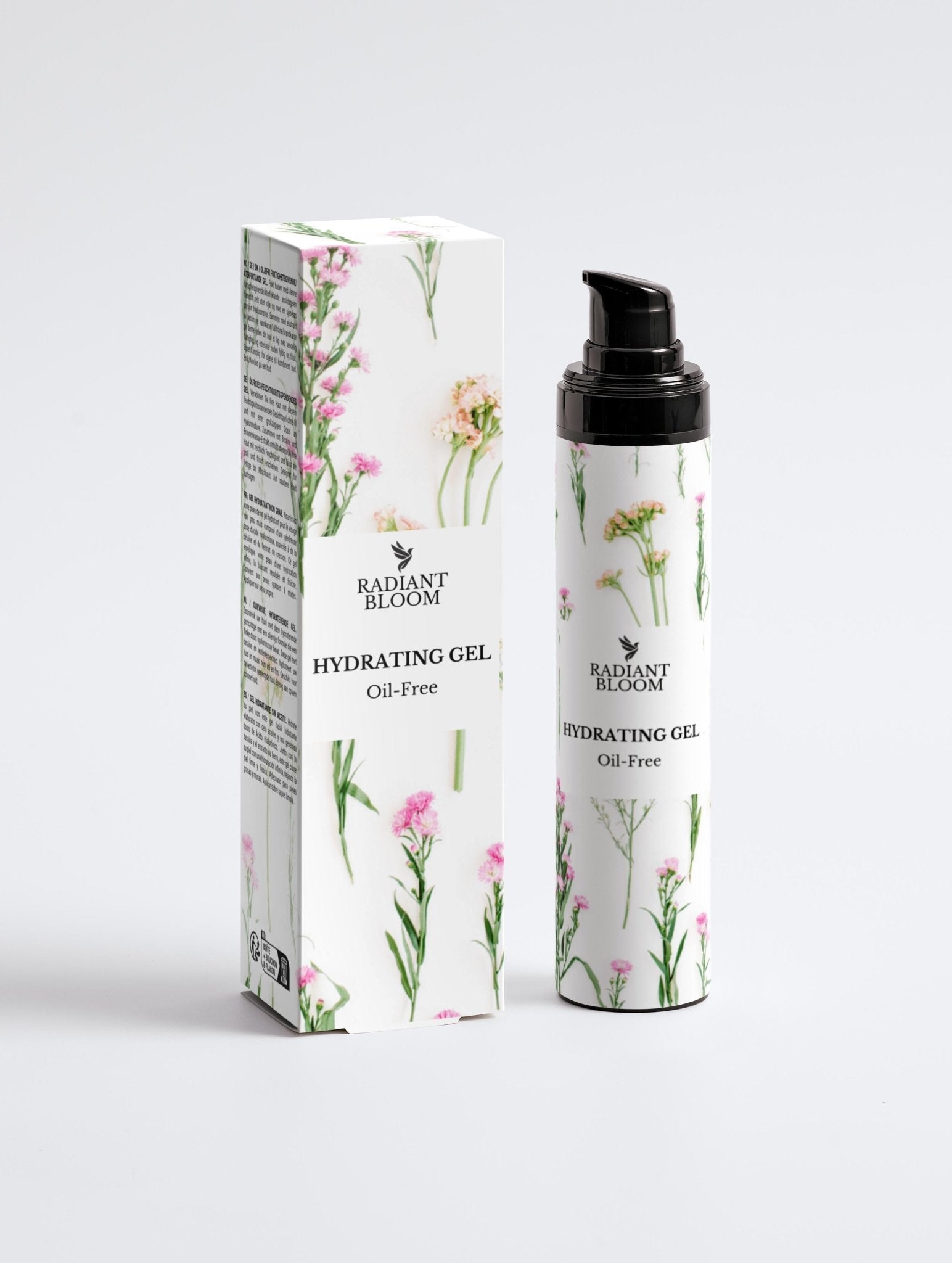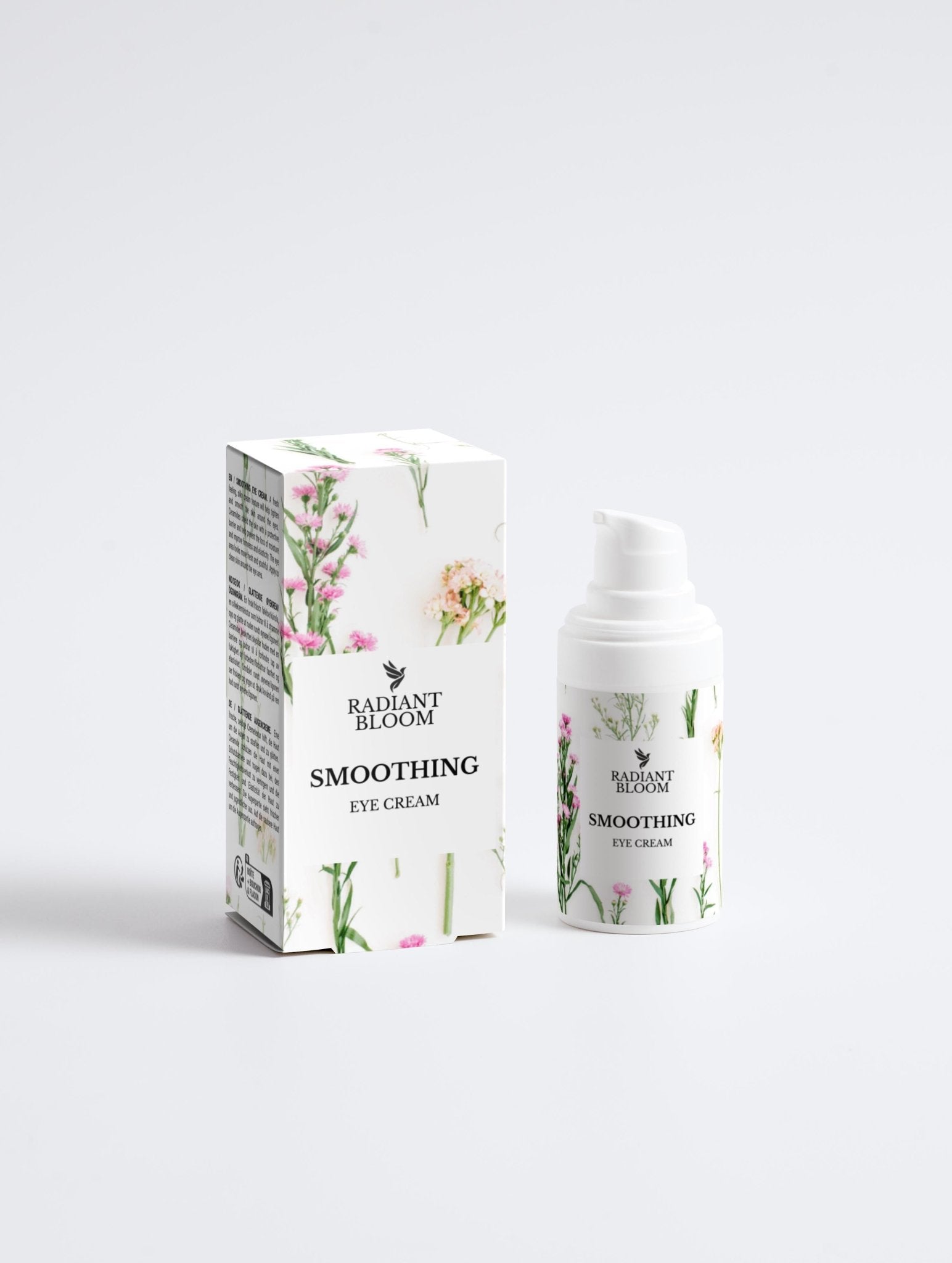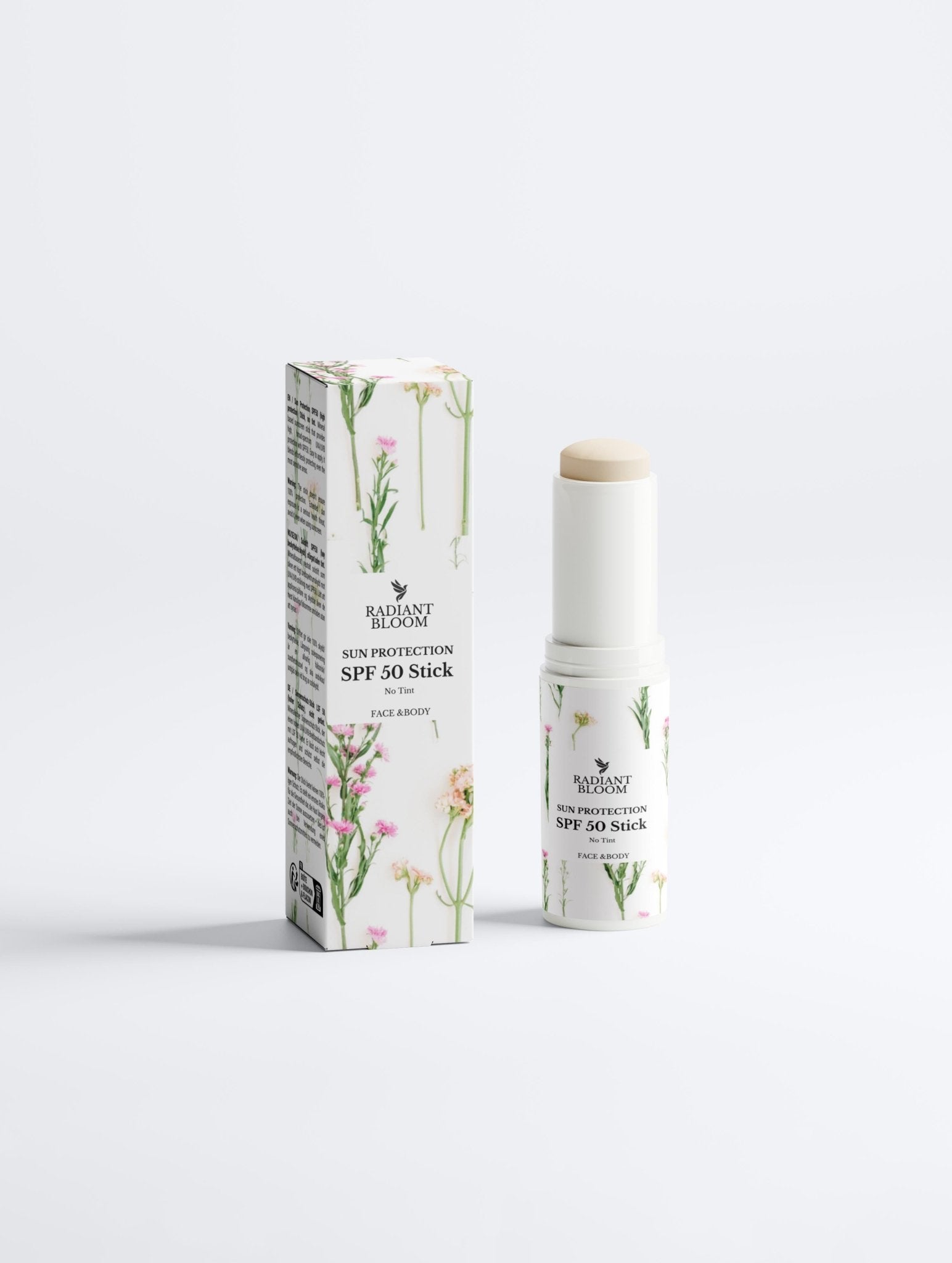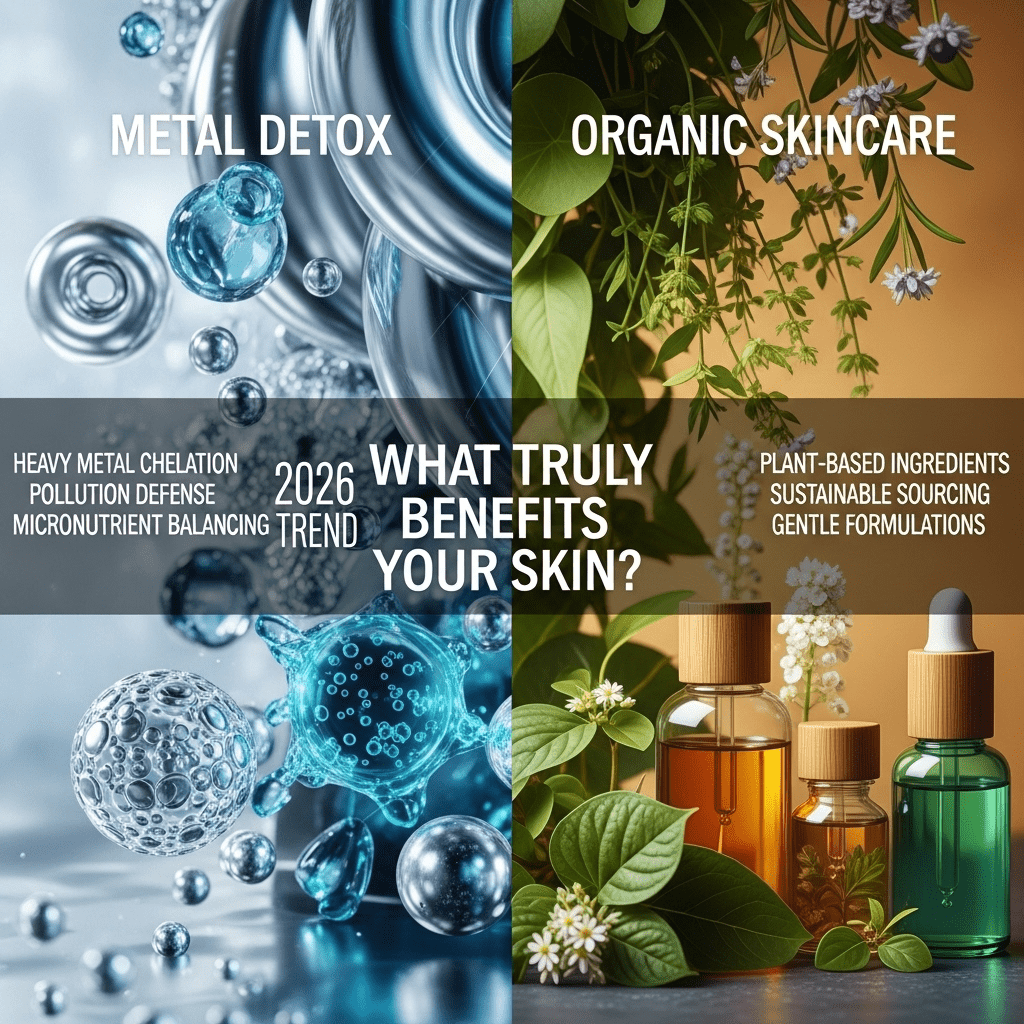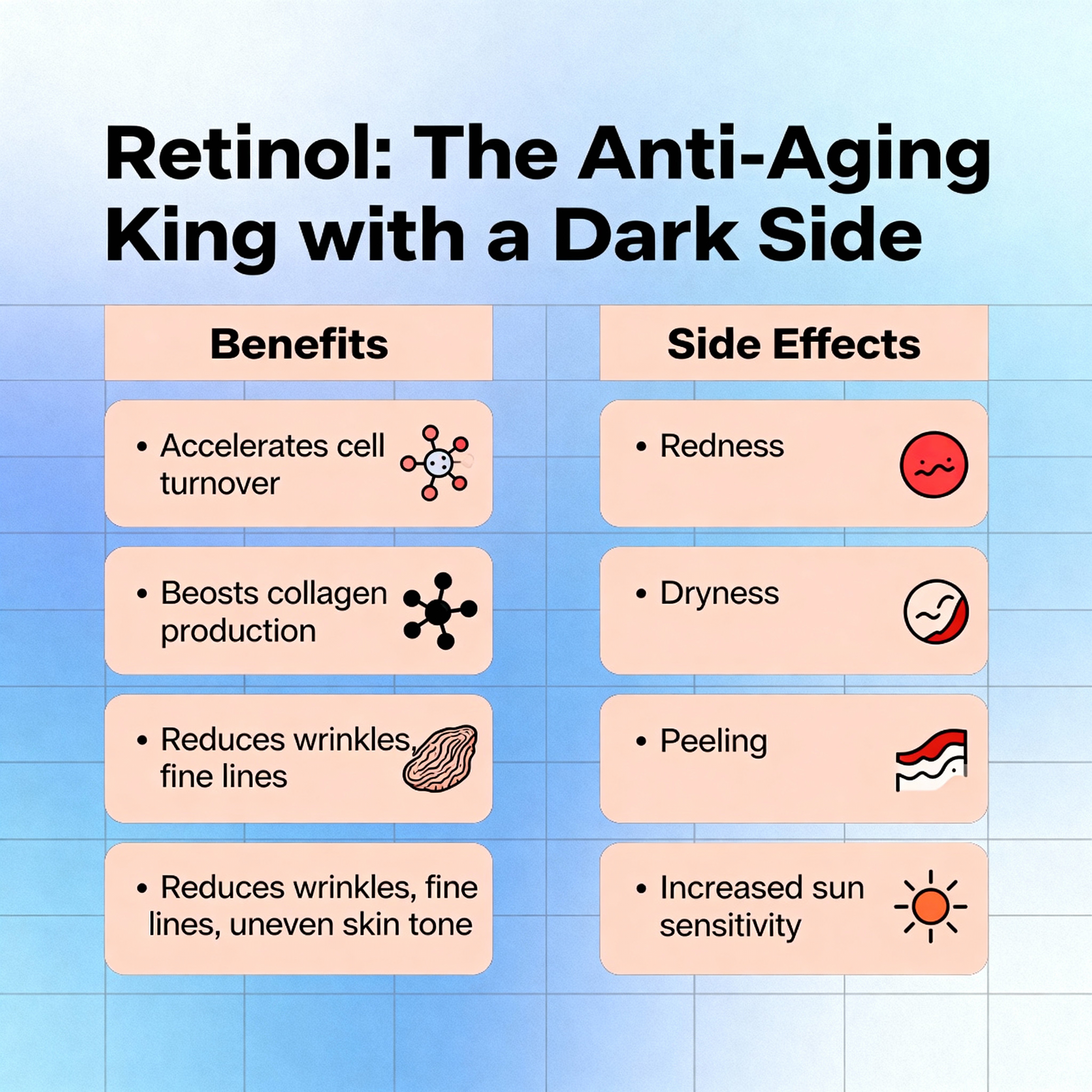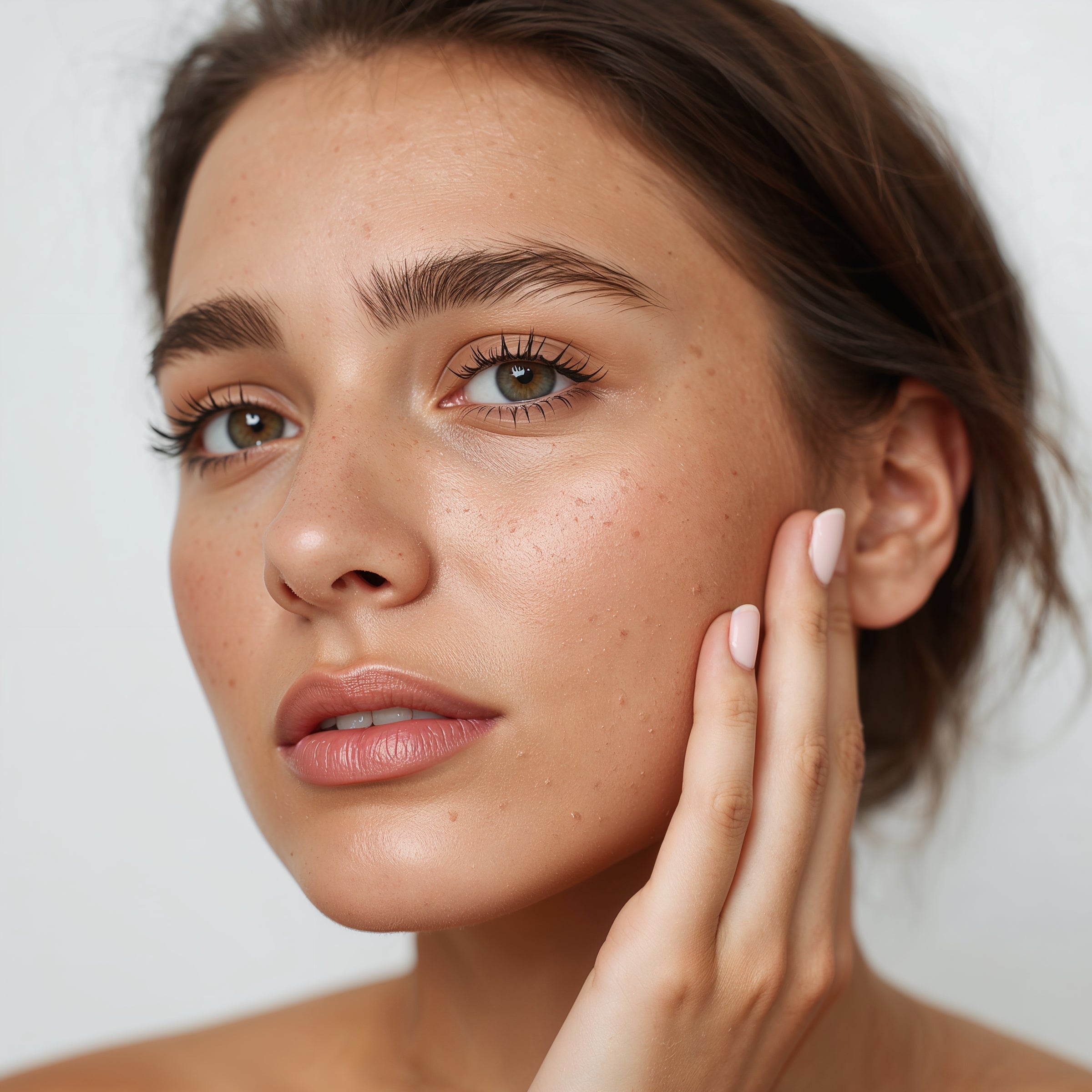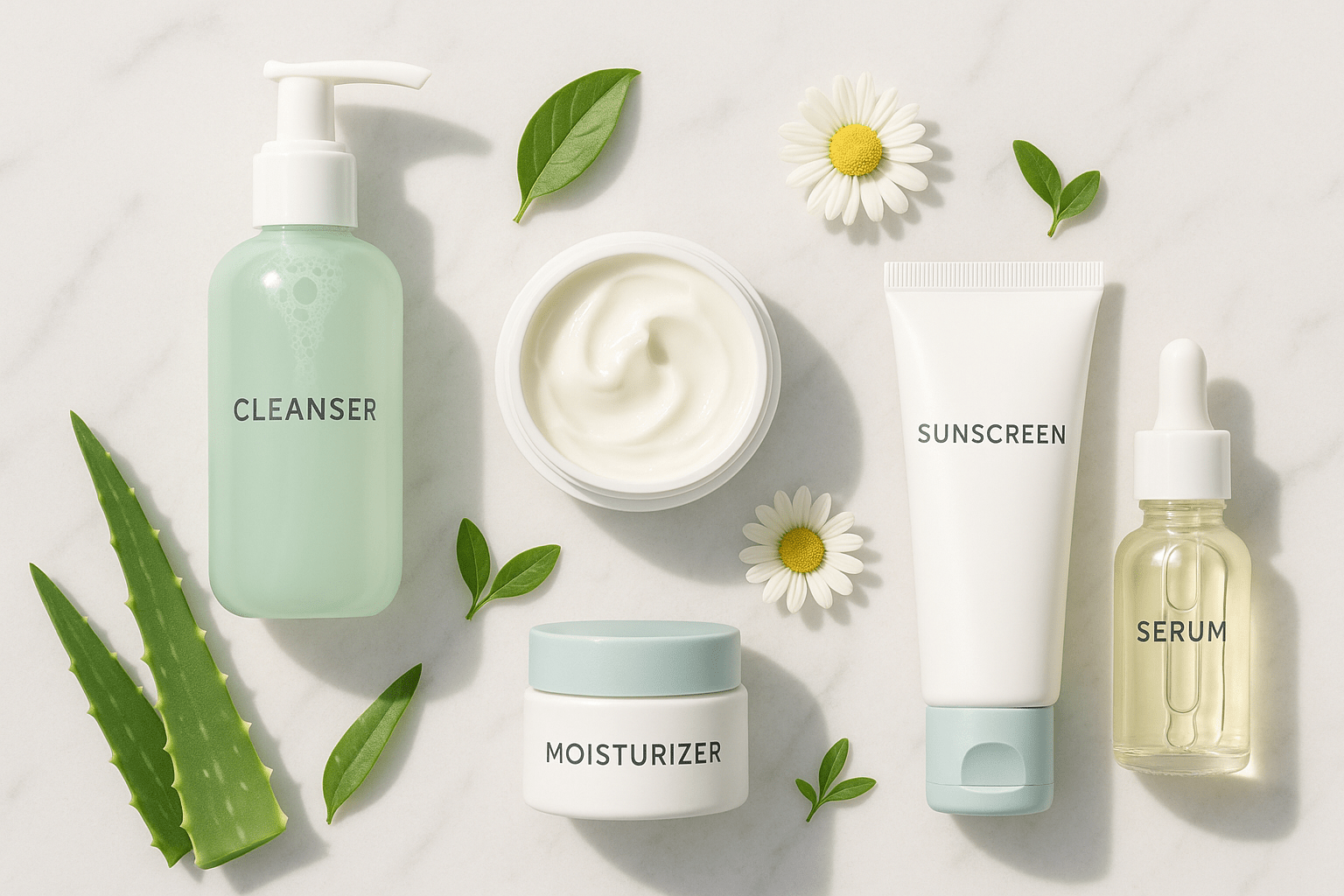Living with sensitive skin can feel like a constant battle. The fear of a new product causing a flare-up, the persistent redness that won’t fade, the tight, uncomfortable feeling after washing your face - it’s a frustrating and often confidence-draining experience. For years, the only solution seemed to be minimalist, uninspired routines that offered little more than basic hydration, forcing you to choose between "safe" and "effective."

But in 2025, that compromise is a thing of the past. Thanks to incredible advancements in green chemistry and a deeper scientific understanding of skin biology, the world of natural and organic skincare now offers a sophisticated arsenal of ingredients that are both exceptionally gentle and powerfully effective. You no longer have to sacrifice results for comfort.
This is your definitive, science-backed guide to the absolute best natural and organic ingredients for sensitive skin. We will explore:
-
The fundamental science of why your skin is reactive.
-
The hero ingredients that calm, soothe, and repair.
-
The actives you can safely use to target concerns like aging and acne.
-
The common irritants you must learn to avoid.
-
How to build a complete routine with these powerhouse ingredients, featuring products from the Radiant Bloom Organic collection.
It’s time to stop fighting your skin and start understanding it. Let's delve into the gentle science that will lead you to your calmest, healthiest, most radiant complexion ever.
Chapter 1: The Science of Sensitivity—Why Your Skin Overreacts
Before you can choose the right ingredients, you must understand the root cause of your skin's sensitivity. It’s almost always linked to one thing: a compromised skin barrier.
Think of your skin's outermost layer (the stratum corneum) as a brick wall. The skin cells are the "bricks," and a complex matrix of natural fats—ceramides, cholesterol, and fatty acids- acts as the "mortar," holding everything together. A healthy, intact barrier is strong and resilient. It masterfully keeps essential moisture in and keeps harmful irritants, pollutants, and allergens out.

In sensitive skin, this "mortar" is often depleted or damaged. This can be due to genetics, environmental factors, stress, or most commonly the use of harsh, stripping skincare products. When the barrier is compromised, it’s like having cracks in the wall.
-
Moisture Escapes: Water easily evaporates from the skin, leading to chronic dehydration, tightness, and flakiness. This is known as Transepidermal Water Loss (TEWL).
-
Irritants Get In: Allergens and irritants can now penetrate deeper into the skin, triggering an inflammatory response from your immune cells. This is what causes the redness, stinging, itching, and burning sensations.
Therefore, the primary goal of any skincare routine for sensitive skin is twofold: calm the immediate inflammation and repair the barrier for long-term resilience. Every ingredient we choose must serve one or both of these critical functions. Our in-depth article, Natural Skincare for Sensitive Skin: The Complete 2025 Guide, provides a full routine built around this philosophy.
Chapter 2: The Calming Botanicals—Your First Responders for Redness
When your skin is in a state of distress, these ingredients are like a cool, comforting blanket. They are nature's anti-inflammatories, working to immediately soothe irritation and reduce visible redness.

Aloe Vera
A legendary succulent used for thousands of years to treat burns and wounds, Aloe Vera is a cornerstone of sensitive skincare.
-
How it Works: Aloe is over 99% water, providing immediate, lightweight hydration. But its magic lies in its rich cocktail of active compounds, including polysaccharides that create a protective seal on the skin, and glycoproteins and anthraquinones that have powerful anti-inflammatory effects.
-
Why We Love It: It’s a multi-tasker that hydrates, soothes, and cools all at once.
-
Find It In: The base of many Radiant Bloom Organic formulations, providing a calming foundation instead of plain water.
Chamomile (and its star compound, Bisabolol)
Chamomile is more than just a calming tea; it’s a powerhouse for calming angry skin.
-
How it Works: Chamomile contains numerous anti-inflammatory flavonoids. Its most prized component is Bisabolol, a concentrated active that has been scientifically shown to inhibit the release of pro-inflammatory cytokines in the skin. This directly interrupts the inflammatory cascade, visibly reducing redness and calming irritation.
-
Why We Love It: It offers targeted, potent relief from the visible signs of sensitivity.
-
Find It In: Our Calming Eye Cream uses chamomile and bisabolol to de-puff and soothe the delicate, reactive skin around the eyes.
Calendula (Marigold)
This vibrant orange flower is a celebrated healing herb in both traditional and modern medicine.
-
How it Works: Calendula is packed with powerful antioxidants, including carotenoids and flavonoids. These compounds help protect the skin from environmental stress, while its saponins and triterpenoids provide significant anti-inflammatory and wound-healing benefits, helping to repair a compromised barrier.
-
Why We Love It: It not only soothes but actively supports the skin's repair processes.
-
Find It In: A key ingredient in our Sensitive Skin Moisturiser, where it works to calm redness and support barrier health.
Colloidal Oatmeal
This isn't your breakfast oatmeal. Colloidal oatmeal is finely ground oat that is suspended in a liquid, allowing it to be easily absorbed by the skin.
-
How it Works: Oats are unique in that they contain Avenanthramides, a group of phenolic antioxidants with incredibly potent anti-inflammatory and anti-itch properties. Oats also contain a high concentration of Beta-Glucans, which are sugars that form a hydrating, protective film on the skin's surface to lock in moisture and protect the barrier.
-
Why We Love It: It’s one of the few ingredients that addresses both dryness and itching simultaneously, making it a hero for eczema-prone skin.
Chapter 3: The Barrier Builders—Reconstructing Your Skin's Defenses
Calming inflammation is only half the battle. To achieve long-term relief from sensitivity, you must rebuild the "mortar" of your skin barrier. These ingredients provide the essential building blocks your skin needs to become strong and resilient.
Ceramides
If your skin barrier is a brick wall, ceramides are the most important part of the mortar.
-
How They Work: Ceramides are a class of waxy lipid molecules that are found naturally in the stratum corneum. They make up over 50% of your skin's lipid composition and are absolutely essential for holding the skin cells together, preventing water loss, and protecting against irritants. When the barrier is damaged, ceramide levels are depleted. Applying topical ceramides directly replenishes this loss, effectively "patching" the holes in your barrier.
-
Why We Love Them: They are a bio-identical ingredient—your skin recognizes them instantly and knows exactly what to do with them.
-
Find Them In: Our Sensitive Skin Moisturiser is formulated with plant-derived ceramides to provide deep, structural repair for a compromised barrier.
Squalane
Not to be confused with squalene (with an "e"), which is naturally produced by our skin but is unstable, squalane is a hydrogenated, stable version derived from plants like olives or sugarcane.
-
How it Works: Squalane is a superb emollient that is incredibly lightweight and biomimetic, meaning it closely mimics our skin's natural sebum. It provides exceptional moisturization, prevents water loss, and softens the skin without feeling greasy or clogging pores.
-
Why We Love It: It delivers the nourishing benefits of an oil with the lightweight feel of a serum, making it perfect for all skin types, even those prone to congestion.
-
Find It In: Many Radiant Bloom Organic creams and oils to provide silky, non-greasy nourishment.
Peptides
Often thought of as purely anti-aging, peptides are fantastic for sensitive skin because they are non-irritating messengers that support skin structure.
-
How They Work: Peptides are short chains of amino acids that signal your skin to produce more collagen and elastin the proteins that give skin its firmness and structure. By strengthening the skin's foundational matrix, you are indirectly reinforcing the barrier and making it more resilient.
-
Why We Love Them for Sensitive Skin: They offer powerful, firming results without the irritation associated with other anti-aging actives like retinol.
-
Find Them In: Our Botox-Like Peptide Serum, which can be safely incorporated into a sensitive skin routine to address signs of aging. Our guide to peptides explains the science in more detail.
Chapter 4: The Gentle Hydrators - The Foundation of Comfort
Dehydration is both a cause and a symptom of sensitivity. Keeping your skin's water content high is fundamental to its health.

Hyaluronic Acid (HA)
A legendary humectant, HA is a sugar molecule that can hold up to 1,000 times its weight in water.
-
How it Works: When applied to the skin, it acts like a magnet, pulling moisture from the environment and the deeper layers of the skin to the surface. This provides an immediate plumping effect and keeps the top layer of the skin saturated with water, which is essential for a healthy barrier function.
-
Why We Love It: It delivers powerful hydration in an incredibly lightweight, oil-free format that is well-tolerated by all skin types.
-
Find It In: Our Hydrating Toner, which provides the perfect first layer of hydration after cleansing.
Glycerin
A classic, unsung hero of skincare, glycerin is another powerful humectant.
-
How it Works: Like HA, glycerin attracts water to itself, hydrating the stratum corneum. But it also helps to improve skin barrier function and has been shown to speed up wound healing processes. It's safe, effective, and non-allergenic.
-
Why We Love It: It's a reliable, foundational ingredient that supports both hydration and barrier health.
-
Find It In: A key component in many of our moisturizers, including the Oil-Free Hydrating Gel, where it provides essential moisture without oil.
Chapter 5: The "Smart" Actives - Targeted Results Without Irritation
Having sensitive skin doesn't mean you have to give up on tackling concerns like aging, dullness, or uneven tone. You just need to choose your active ingredients wisely.

Niacinamide (Vitamin B3)
Niacinamide is perhaps the most valuable active ingredient for sensitive skin due to its incredible versatility and gentleness.
-
How it Works:
-
It's a Potent Anti-Inflammatory: It visibly reduces redness and blotchiness.
-
It Strengthens the Barrier: It boosts the production of ceramides, directly helping to repair the "mortar" of your skin barrier.
-
It Regulates Oil Production: Making it great for sensitive skin that is also prone to oiliness or breakouts.
-
-
Why We Love It: It addresses nearly every concern of sensitive skin in one gentle ingredient.
-
Find It In: Our Purifying Toner, which is gentle enough for sensitive skin but effective at refining pores and calming redness.
Bakuchiol (The Gentle Retinol Alternative)
For years, those with sensitive skin were told to avoid retinol at all costs. Bakuchiol has changed the game.
-
How it Works: Bakuchiol is a plant-derived compound that has been clinically proven to provide the same anti-aging benefits as retinol stimulating collagen, speeding up cell turnover, and reducing wrinkles but without the notorious side effects of irritation, peeling, and sun sensitivity. Our Bakuchiol vs. Retinol guide covers the science.
-
Why We Love It: It finally allows sensitive skin types to access powerful, regenerative anti-aging benefits safely.
-
Find It In: Our revolutionary Organic Retinol Alternative Oil Serum.
Gentle Vitamin C (Ascorbyl Tetraisopalmitate)
Like retinol, high concentrations of pure Vitamin C (L-Ascorbic Acid) can be too harsh for sensitive skin. But that doesn't mean you have to miss out on its incredible antioxidant and brightening benefits.
-
How it Works: We use a stable, oil-soluble form of Vitamin C. This advanced derivative is much gentler on the skin, penetrates more effectively, and is less prone to oxidation, delivering the brightening and collagen-boosting benefits without the sting.
-
Find It In: Our Vitamin C Serum, formulated to be effective yet gentle.
Chapter 6: The "Do Not Use" List - Ingredients to Avoid

What you don't put on your skin is just as important. Scrutinize your labels and avoid these common triggers :
-
Synthetic Fragrance / Parfum: The #1 cause of allergic contact dermatitis in cosmetics.
-
Drying Alcohols (Alcohol Denat., SD Alcohol): These strip your skin's natural oils and severely damage the barrier.
-
Sulfates (SLS & SLES): Harsh detergents in cleansers that lead to that "squeaky clean" but tight feeling.
-
Harsh Physical Scrubs: Jagged particles create micro-tears in the skin.
-
Certain Essential Oils: While natural, oils high in fragrance compounds like limonene, linalool, and geraniol can be very sensitizing.
Conclusion: The Path to Calm, Resilient Skin
Caring for sensitive skin is a journey of understanding and gentleness. It’s about choosing ingredients that soothe, repair, and respect your skin's delicate nature. By building a routine around the calming botanicals, barrier-building lipids, and smart actives detailed in this guide, you can move beyond a cycle of reaction and recovery and into a state of sustained comfort and radiance.
Nature, backed by science, provides everything your sensitive skin needs to thrive. At Radiant Bloom Organic, our entire collection is a testament to this philosophy.
We invite you to explore our Sensitive Skin products and our broader Skincare Education Blog to become the most empowered advocate for your own skin. Your journey to calm starts now.

